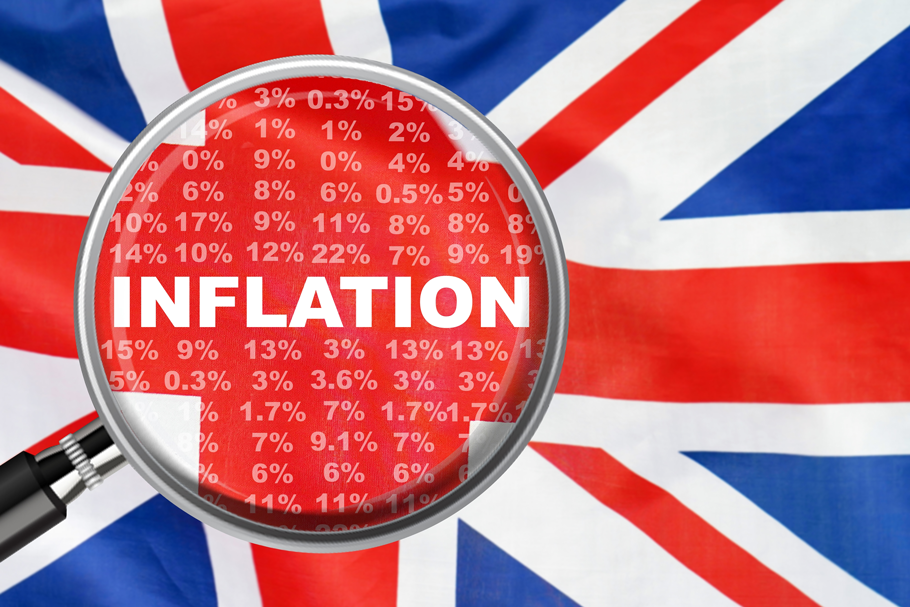UK's Inflation Eases To 4.6%, A Two-Year Low: Implications And Outlook

By Brett Hurll
Understanding the Recent Drop in Inflation
In a significant economic development, the United Kingdom has witnessed a notable decrease in inflation rates, with the latest figures indicating a fall to 4.6%. This reduction, the most substantial in recent years, brings a sense of relief and raises questions about the factors influencing this trend.
Factors Behind the Decline
A closer look at the data reveals that the reduction in inflation is primarily attributed to a decrease in utility, fuel, and food prices. These sectors, heavily influenced by global market trends, have seen a reduction in costs, contributing significantly to the overall decline in inflation. Additionally, the Bank of England's proactive approach in increasing interest rates has played a crucial role in tempering core inflation.
Contrary to some opinions, Prime Minister Rishi Sunak's policies have had a limited direct impact on this decline. The influence of global market forces and the central bank's monetary policies appear to be the primary drivers behind the easing inflation rates.
Statistical Overview and Economic Reactions
The Office for National Statistics reports that the annual consumer price inflation grew by 4.6% last month, a figure lower than the anticipated 4.8% and a substantial drop from the 6.7% recorded in September. This decrease is also reflected in core inflation, which excludes volatile energy and food prices, slipping to 5.7% from 6.1%.
The market reaction to these figures was positive, with the UK's benchmark stock market indexes, including the FTSE 100 and FTSE 250, showing gains. This uptick in market sentiment underscores the impact of inflation figures on economic confidence.
Historical Context and Government Interventions
The decline in inflation can be partly attributed to the government's introduction of an energy price cap, which has moderated the surge in household energy bills. This intervention was a response to the double-digit inflation driven by soaring global gas prices last year.
The Office for National Statistics also noted a decrease in housing and household service costs, contributing to the overall slowing of inflation. Food prices, too, have seen a reduction, reaching a 15-month low.
Wider Economic Implications
This consistent decrease in inflation over the past seven months has implications for the labor market and consumer spending. With wage pressures showing a slight ease, there's growing optimism about the effectiveness of restrictive interest rates in controlling inflation.
The annual retail prices index inflation rate, another measure of the cost of living, was reported at 6.1% last month. Although no longer an official measure, it continues to influence contract settings and economic analyses.
Comparative Global Perspective
The UK's inflation trajectory, once consistently higher than other G7 economies, is now aligning more closely with its peers. For instance, the US reported a headline inflation of about 3% in October, with the eurozone averaging at 2.9%.
Outlook and Bank of England's Stance
The Bank of England, maintaining the base rate at 5.25%, is expected to hold interest rates steady in the upcoming period. The sharp decline in inflation, especially in energy prices, masks some underlying challenges. Experts caution that while the headline figures show a decline, underlying inflationary pressures, particularly in service prices, persist.
The Bank's Monetary Policy Committee noted that inflation is falling faster than their initial forecasts, indicating a potential shift in their approach towards interest rate adjustments.
The Road Ahead: Predictions and Expectations
The current trend suggests that inflation in the UK could end the year around 4.3%. This projection aligns with the broader global pattern of disinflationary forces. Economists predict that the Bank of England might initiate rate cuts as early as next year, countering the previous expectations of a delay in monetary easing.
As the UK aligns its inflation rates with other major economies, there's a renewed focus on the next steps for monetary policy and the balancing act between controlling inflation and fostering economic growth.
Conclusion
The UK's journey through a period of heightened inflation seems to be taking a turn towards stabilization. While the immediate relief is palpable, the path forward demands careful navigation, balancing economic growth with inflation control. The coming months will be crucial in determining the effectiveness of the current monetary policies and the government's role in sustaining this trend of easing inflation.
World Liberty Seeks Federal Trust Charter
World Liberty Financial, the crypto venture backed by the Trump family, has applied for a US national bank trust charter... Read more
Saudi Banks Tap Overseas Markets
Saudi Arabia’s banks are borrowing from international markets at their fastest pace on record, as lenders try to squar... Read more
Amazon Continues To Cut 16000 Gone
Amazon has announced plans to cut a further 16,000 roles from its corporate workforce, extending the cost and organisati... Read more
The UK May Have A Voice In Ai
Europe’s AI sector has grown accustomed to playing catch-up. Capital has flowed more slowly than in Silicon Valley, va... Read more
Musk Applies Pressure To BT
Britain’s broadband market has spent the past decade locked in a familiar pattern. Incumbents invested heavily in fibr... Read more
Blackrock Sees EMEA Moving Into Private Assets
BlackRock has warned that investors across Europe, the Middle East and Africa are reshaping portfolios in response to wh... Read more

